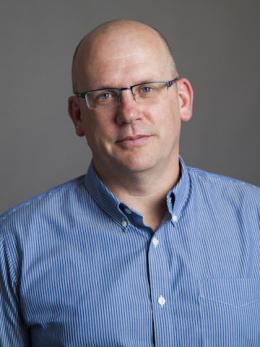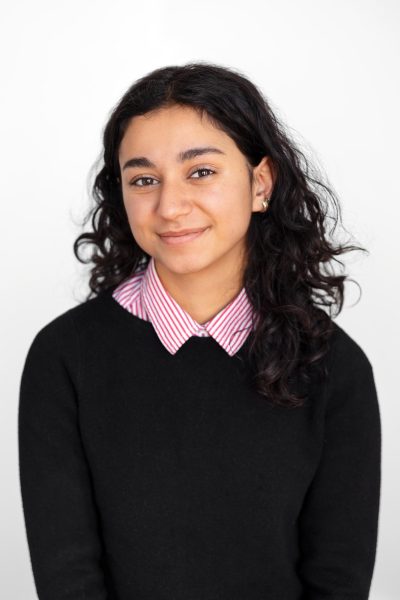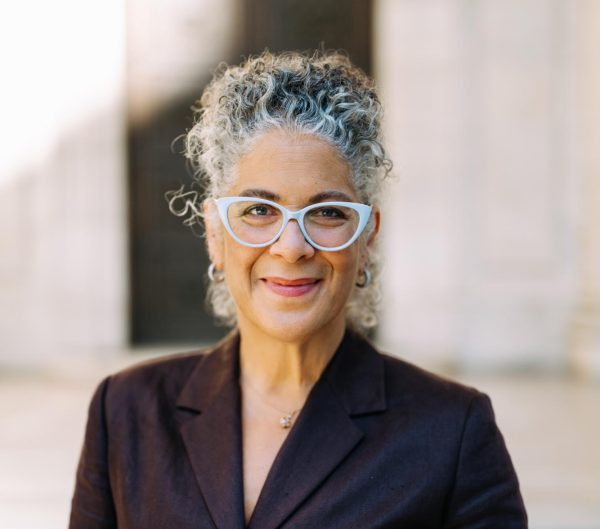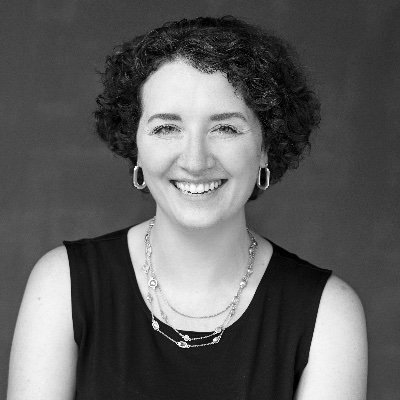OTC: Nick Petzak, Director of Fellowships and Awards

Nick Petzak
For the 10th year in a row, Director of Fellowships and Awards Nick Petzak has led Oberlin to be recognized as a top producer of Fulbright Scholarship students. The Fulbright Program, which historically has a percentage award rate in the low 20s, sends students to over 140 countries to engage in research and teaching opportunities. Besides success with the Fulbright scholarship, the Office of Fellowships and Awards has also been highly successful helping students land awards including Truman, Goldwater, and Watson.
This interview has been edited for length and clarity.
Can you tell me a little about your office?
The office coordinates advising and recruiting for all of the major awards. From their first year to their fourth year, helping [students] navigate Oberlin, helping them find experiences that will make them competitive later on. Helping students move from [one] experience to another, and to think about what they have learned to where they want to go next. I work with students in the Conservatory and the College — really any major and discipline — and I think a common misconception is that I only really work with students who have from a 3.7 to 4.0 GPA range. In certain circumstances, there are bright lines; so if we are talking about a Marshall Scholarship, that’s a 3.7 to be eligible, but for so many other programs that I work on — including Goldwater — the GPA is not the most important. In fact, the selectors are looking for people who have taken initiative, have summer experience, leadership roles on campus, or something academically — all sorts of ways to demonstrate what you are excited about.
Can you tell me a little about why Oberlin has been so successful with the Fulbright?
I can point to three or four [reasons]. Oberlin students think internationally, and obviously that is crucial to be involved in international experiences at a personal level and a policy level. The other thing is that Oberlin student[s] just make fantastic ambassadors. They understand what it takes to operate internationally. They understand what it takes to make community, they know how to listen first and listen deeply, and how to add themselves to the mix.
And more pragmatically, there are so many opportunities for Oberlin students to teach: Ninde [Scholars Program], America Counts, the El Centro program. Also the faculty, who are so generous with their time and energy, contribute a lot to the Fulbright application process. The alumni network is also really generous. Alumni are always really helpful to current students and that is a tremendous advantage.
What is the biggest challenge your office faces?
Sometimes it’s just a matter of a time crunch. If you’re looking at the way these [fellowships] are constructed, the deadlines are at the head of the semester — so Fulbright, Marshall, Mitchell, I could go on, all within two weeks, [the last] of September or [the first of] October — so that is a tremendous challenge. The challenge is to start early enough, so given the time crunch, it’s important we start the spring of their junior year.
If a student is interested in Fulbright, what should they be doing?
Well, let me answer that one slightly more philosophically. They need to do whatever it is that they do, well. They need be ambitious about summer, Winter Term, whatever they do outside of class. But whatever it is, they need to be excited about it, and they need to communicate their passion for something. You need to get people excited about what you are excited about.
Do you have any fun stories about interesting things students you’ve worked with have done?
Wow, so many. Allow me to give you some examples from just this week. So this week, a student I’ve been working with since 2012 on various projects won a Gates Cambridge Award to go study geography at the University of Cambridge. I’ve been working with them since, 2012 and they have applied for various things, but never won anything before, and … now all has come to fruition. I had a student in my office who memorably said, “I just love baroque music so freaking much.” She is now going to go study Baroque Harp in Switzerland next year with the person whom she considers the best teacher in the world. That is super exciting. I’m working with a second-year student who is just beginning to think about what she is most excited about, and she is going to Scotland to help her get her some clarity on that. I can go on. That’s the great thing.
What are you excited about for the future?
I am really excited about the way fellowships might work with the Career Communities initiative. I’m optimistic that this will change the way we think about the kinds of relationships between these applications, and I am interested to see how my office works with that initiative. I am interested to see how the new [Career Development Center] director takes that fantastic work and builds from that.









